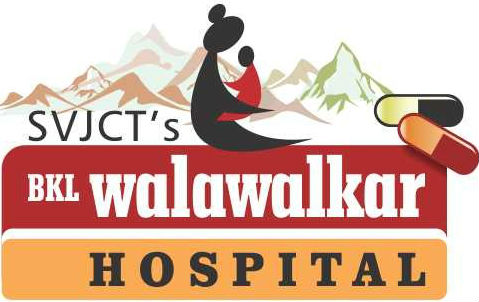Early Detection
Cancer toll in our country and in any developing country is due to the fact that 70% of the cases are detected late and reported for treatment in very advanced stages. We may find the same situation from the studies conducted by Tata Hospital in the Konkan Region.
Reasons for late Detection:
- Poverty and Illiteracy
- Lack of Health Care Services
- Conservative Attitude
- Myths and Beliefs
Taking into consideration the above mentioned regions, it is clear that what lacks mainly is the awareness
- About disease,
- The screening tests
- The fact that the cancer is curable if detected at the right time.
Thereby a proper health education may motivate people for screening which can lead to early detection.
A large number of dedicated professionals from both the institutions i.e. Walawalkar Hospital and Tata Memorial have put their efforts for cancer prevention, early detection and the treatment of poor people through various projects.
B.K.L. Walawalkar Hospital aims at alleviating the physical, emotional and financial suffering associated with the cancer in Konkan region of Maharashtra. Among its secondary aims, the hospital plans to lend complete support to patients, R&D on causes and increase interaction between professionals.
1. Support for curative treatment of patients afflicted with cancer.
The foundation is giving free of cost treatment to patients suffering from oral, Breast and Cervical cancer. The patients who have been diagnosed at a relatively early stage are treated free of cost and hence have a greater chance of recovery.
2. Support of education and technology transfer in cancer treatment in the form of screening and health awareness.
- Sharing information with health professional on the latest approaches and techniques in treating cancer.
- Networking with hospitals, research bodies and rehabilitation agencies all over the country through telemedicine setup.
3. Extensive support of research in cancer disease.
- Setting up a research agenda for different types of cancer.
- Studies of ways to prevent, detect, diagnose and treat cancer.
- Studies of ways to improve comfort and quality of life of people afflicted with cancer.
- Studies of the psychological effects of the disease.
3. Launching a large-scale awareness campaign to increase awareness among population about Oral, breast, cervical, Esophagus and other cancers.
- Breast cancer, a significant health problem and alarmingly on the rise.
- Early detection is vital and can improve cure rates as well as the chances of organ preservation.
- Perceptions about the social stigma associated with cancer need to be changed.
